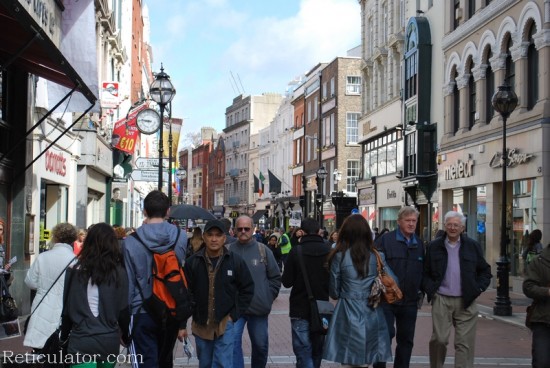 Four numbers: 10, 20, 30, and 20.
Four numbers: 10, 20, 30, and 20.
Me: The average (arithmetic mean) is 20.
WSJ: The reality may be a bit more complicated. Some of the numbers are not 20. The numbers include some that are larger and/or smaller than 20.
Me: [Facepalm]
Sigh. The above is not really from the WSJ, but page A5 of the print edition of the weekend WSJ has an item that’s even more ridiculous than the above. It’s by a Dante Chinni and is titled, The Gingrich Effect: What if it went away?
Following a tough Tuesday night, calls have grown for Newt Gingrich to abandon his presidential run, even as he vows to battle on. Some assume his departure would shake up the race, and supporters of Rick Santorum figure their man would benefit because more of Mr. Gingrich’s supporters would line up behind him than behind Mitt Romney. The reality may be a bit more complicated. Patchwork Nation’s demographic/geographic breakdown of counties suggests support for Mr. Gingrich varies greatly by community type, and from state to state. In some states, such as Illinois, the impact of the Gingrich vote looks relatively small–Mr. Gingrich hasn’t won many votes in the type of places that make up most of Illinois’s population. In others, such as Louisiana, it could be substantial. [Emphases are mine.]
The main problem is the statement, “The reality may be a bit more complicated.”
No, the reality is NOT more complicated than that. The situation may be more complicated than the simple summary, but that doesn’t mean the summary is wrong or any less real. The summary may be wrong, but if is wrong it’s wrong because it’s wrong, not because it’s not complicated enough. An accurate summary is reality, and a detailed breakdown is reality. One is not more real than another just because it’s more or less detailed.
There are three questions:
- Is there a Gingrich effect?
- If yes, who would benefit?
- If yes, would it shake up the race?
The data that are presented on a chart show that the “Gingrich effect” is big in some places and small in others. That’s interesting to know, but it doesn’t help us understand who would benefit or whether it could “shake up” the race. The answer to the latter question would of course depend on more than just the numbers. It’s hard to predict what the psychological effect of a vote shift would be, for example.
The numbers that are presented are interesting, but they don’t support the silly statement that, “The reality may be a bit more complicated.” The reality may be different than what Santorum thinks. If Newt drops out, Santorum may not benefit enough to make a difference. But that’s not because the reality is more “complicated”.











